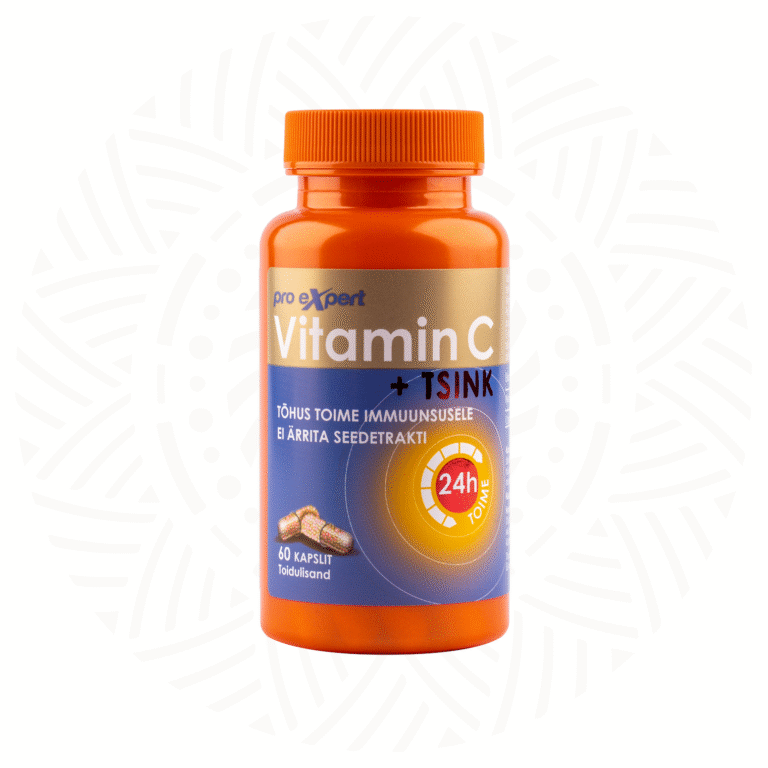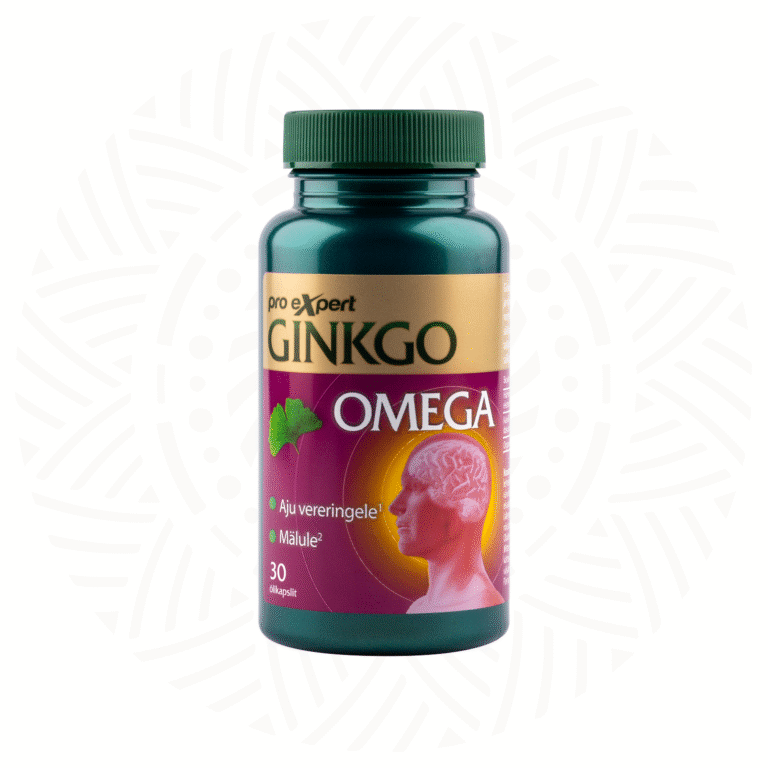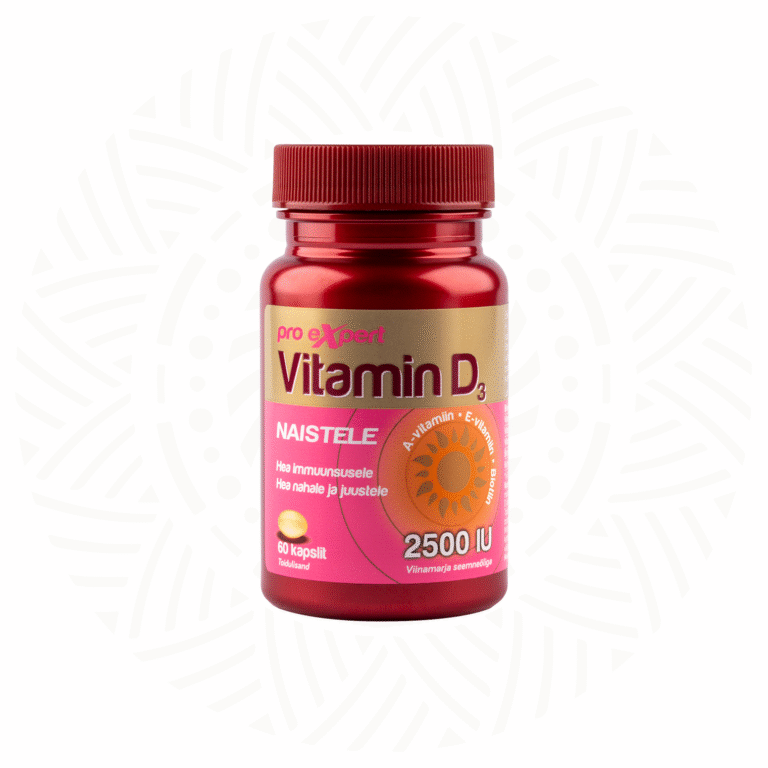Modern life puts our eyes to the test. Dry air during the heating season, office air conditioners, constant screen exposure, or wearing contact lenses are just a few factors that can cause eye fatigue, dryness, and overall tiredness.
Read on to learn how to protect your eyes in today’s world and maintain clear vision for a long time. Additionally, we will explore which eye vitamins to choose to support eye health and prevent potential discomfort.
Why Is Eye Health Important?
Good vision improves quality of life at any age. The eye is the second most complex organ in the body after the brain. Eyes allow us to distinguish shapes, sizes, spatial movement, light, and different colors. A fascinating fact: the human eye can distinguish approximately 10 million different shades of color.
When Do Eyes Need Support?
Although eyes are essential, we often take good vision for granted. Eyes require special care and protection throughout the year, especially in spring when they are most affected by pollen, urban dust left from winter, and bright sunlight.
To maintain sharp vision for a long time, it is crucial to protect your eyes from the harmful effects of screen exposure. Extended screen time reduces the frequency of blinking, leading to insufficient tear production and dry eye syndrome, which can lower quality of life, cause eye inflammation, and lead to severe eye diseases.
In addition to daily harmful factors, physiological changes in the eyes typically become noticeable in the 40s, including changes in near vision, difficulty reading small text, and increased eye fatigue.
Supporting eye health is important at any age, not just a concern for older people. An increasing number of younger individuals visit eye doctors with complaints such as dry eyes, eye infections, and vision problems. For older adults, additional concerns include cataracts, glaucoma, and macular degeneration.
Therefore, the best way to prevent eye problems is to take proactive measures in time!
How to Take Care of Your Eye Health?
Eye health significantly affects our ability to see and perceive the world around us. Following healthy habits and avoiding harmful factors is key to maintaining good eye health. Here are some tips:
- Eat a balanced diet rich in fruits, vegetables, nuts, and fish.
- Wear sunglasses to protect your eyes from UV radiation.
- Reduce screen time and take breaks.
- Stay hydrated.
- Limit contact lens usage.
- Quit smoking.
- Consume alcohol in moderation.
- Ensure quality sleep.
- Visit an eye doctor regularly.
What Symptoms Indicate Eye Problems?
The warning signs of eye problems vary depending on the cause, but the most common symptoms include:
- Redness
- Itching
- Dryness, burning, or a sandy sensation in the eyes
- Eye pain
- Worsening vision
Additionally, more specific signs such as frequent headaches or light sensitivity can also indicate eye problems. It is crucial to pay attention to eye health and visit an eye doctor regularly to detect potential issues early.
How to Relieve Dry Eye Syndrome?
One way to alleviate dry eye symptoms is by using moisturizing eye drops, also known as artificial tears. Artificial tears help maintain moisture on the eye’s surface, reducing dryness, redness, and irritation.
However, it is important to understand that eye drops are not a cure for dry eye syndrome but rather part of the solution. For effective and lasting results, the eyes need essential nutrients, which can be provided by specific eye vitamins.
When Do Eyes Need Eye Vitamins?
It is true that vitamins and minerals are essential for eye health, and getting them from food is not as simple as just eating carrots.
Eye vitamins are specially formulated supplements designed to support eye health. Composed of various vitamins, minerals, and antioxidants, eye vitamins play a crucial role in maintaining normal eye function.
Eye vitamins are beneficial for people who:
- Work extensively with screens, read frequently, or strain their eyes in other ways
- Frequently experience dry eye symptoms
- Want to protect their eyes from harmful UV radiation
- Drive often in dim or dark conditions, where additional eye support is necessary
- Are in their 40s, when physiological changes in the eyes start to appear
- Have chronic conditions such as diabetes or high blood pressure
It is recommended to take a specialized eye vitamin course twice a year, lasting two to three months. Eye vitamins are excellent for strengthening the eyes preventively, relieving fatigue and dryness, and preventing worsening vision problems in both young and elderly individuals.
How to Choose the Best Eye Vitamins?
Eye vitamins are an excellent way to support and strengthen eye health at any age. They are designed not only for older individuals but for anyone who wants to prevent and alleviate vision problems, especially in today’s digital age, where screen exposure has significantly increased eye strain.
Specialized eye vitamins effectively relieve fatigue, irritation, redness, and dryness, providing significant relief from various eye problems, including dry eye syndrome.
When selecting eye vitamins, it is important to ensure synergy between ingredients rather than competition. Some of the best eye-supporting nutrients include:
- Lutein and zeaxanthin
- Zinc
- Bilberry extract
- Ginkgo biloba
Eyes also need vitamins A, B, C, and E, selenium, and omega-3 fatty acids. Choosing the best eye vitamin is important, as it should meet your individual needs while considering the essential effects of different active ingredients on eye health.
Lutein and Zeaxanthin – The Best Natural Protection Against Sunlight
Only eye vitamins rich in lutein and zeaxanthin provide effective protection against harmful blue and ultraviolet light. The body does not produce lutein and zeaxanthin on its own, and their levels significantly decrease with age. It is also worth noting that even a well-balanced diet may not provide sufficient amounts of these nutrients, making supplementation important from time to time.
Lutein and zeaxanthin are found in the retina and act like natural sunglasses, protecting the eyes from excessive blue and ultraviolet light exposure.
In addition, lutein and zeaxanthin protect the eyes from oxidative stress, which contributes to various eye diseases, including age-related macular degeneration and cataracts.
Zinc – Essential for Vision Improvement
Zinc is a critical mineral and antioxidant for eye health, as it promotes the absorption of vitamin A and the production of melanin pigment, which protects the eyes from ultraviolet radiation.
Zinc is also present in the retina, where it effectively enhances night vision, reduces the risk of eye inflammation, and helps prevent macular degeneration. This makes zinc an essential mineral for maintaining eye health.
Bilberry – A Powerful Support for Eye Health
Bilberries have long been recognized as a food that provides multiple benefits for eye health. The antioxidants, vitamins, and minerals in bilberries help protect the eyes from fatigue, dryness, and redness while effectively improving vision.
For those who experience eye fatigue in the evenings or have difficulty seeing in low-light conditions, specialized eye vitamins containing bilberry extract are recommended.
Bilberry supports the retina, promotes collagen formation, and effectively enhances vascular health, which is an important factor in overall eye well-being.
Ginkgo Biloba – Effective Support for Eye Circulation
Ginkgo biloba, another essential ingredient for eye health, provides excellent support for ocular blood circulation. Its combination of antioxidants and anti-inflammatory properties helps improve blood flow to the eyes, ensuring the necessary oxygen and nutrient supply. This is particularly important, as the eyes require sufficient circulation to cope with daily stressors that can affect vision and overall eye health.
Ginkgo biloba complements other eye vitamin ingredients, offering additional support for maintaining eye health.
Choose your eye vitamins wisely and keep your vision clear for years to come!







